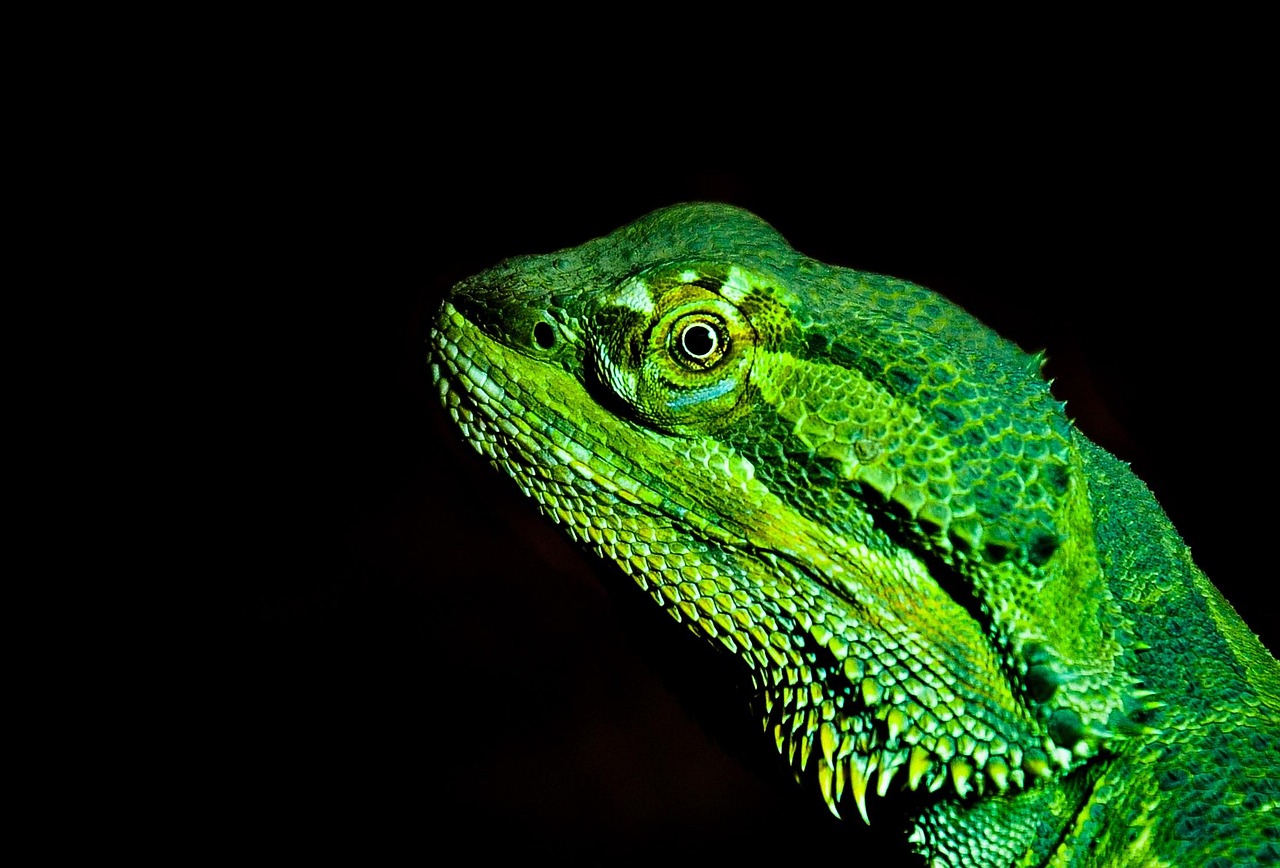Bearded dragons are hardy, fascinating reptiles, but just like any pet, they can face health challenges. Knowing how to recognize early symptoms, prevent common illnesses, and seek the right treatment can make all the difference in your scaly companion’s well-being.
Let’s dig into some of the most common health problems bearded dragons encounter and how you can keep them in top shape.
Common Health Issues in Bearded Dragons
1. Metabolic Bone Disease (MBD)
This is one of the most prevalent and serious conditions affecting bearded dragons, often caused by calcium or vitamin D3 deficiencies. Without proper supplementation and UVB lighting, their bones become weak, deformed, and brittle.
Signs to Watch For:
- Soft or swollen jaw
- Difficulty standing or walking
- Tremors or twitching
- Curved limbs or a bent spine
Prevention & Treatment:
- Use a high-quality UVB bulb and replace it every 6-12 months.
- Provide a calcium supplement with vitamin D3.
- Offer a balanced diet with gut-loaded insects and fresh greens.
- If caught early, MBD can be managed with dietary changes and vet-prescribed calcium treatments.
2. Respiratory Infections
Cold temperatures, high humidity, and unsanitary conditions can lead to respiratory infections, which can become life-threatening if ignored.
Signs to Watch For:
- Labored breathing or wheezing
- Mucus around the mouth or nostrils
- Lethargy and loss of appetite
- Frequent gaping or puffing up of the beard
Prevention & Treatment:
- Keep the basking spot between 95-110°F and the cool side near 75-85°F.
- Ensure proper ventilation in the enclosure.
- Reduce humidity levels to 30-40%.
- If symptoms appear, a vet may prescribe antibiotics; home remedies won’t be sufficient for severe cases.
3. Parasites and Digestive Issues
Even in clean environments, parasites like pinworms or coccidia can invade your dragon’s digestive tract, causing serious discomfort.
Signs to Watch For:
- Runny or foul-smelling stool
- Rapid weight loss
- Bloated or sunken belly
- Lack of appetite
Prevention & Treatment:
- Keep the enclosure clean and remove waste quickly.
- Avoid feeding wild insects, as they may carry parasites.
- If digestive problems persist, a vet can run fecal tests and prescribe medication if needed.
Preventing Illnesses Through Proper Care
Many health issues can be avoided with consistent husbandry and attention to detail. Here are some key preventive measures:
- Temperature & Lighting: Always use a reliable thermostat to regulate temperatures in the basking and cool zones. A high-quality UVB light is non-negotiable.
- Diet & Hydration: Offer a variety of leafy greens, occasional fruits, and protein-rich insects. Gut-load feeder insects for added nutrients.
- Hygiene & Maintenance: Spot-clean the enclosure daily and do a deep clean monthly with reptile-safe disinfectants.
- Minimize Stress: Bearded dragons don’t handle change well. Ensure a quiet, stable environment and handle them gently to avoid unnecessary stress.
Home Remedies vs. When to See a Vet
Not every issue requires a trip to the vet, but knowing when professional help is needed is crucial.
Safe Home Treatments:
- Mild dehydration? A warm soak can help.
- Minor skin shedding issues? Coconut oil or a humidity boost often solves it.
- Lack of appetite? Try offering a favorite treat or adjusting the temperature slightly.
When to Seek a Vet Immediately:
- Significant weight loss
- Persistent lethargy
- Visible bone deformities
- Open wounds or abscesses
- Labored breathing or excessive mucus production
If in doubt, trust your instincts. A quick vet visit is always a better option than waiting too long and risking a serious decline in health.
Handling Stress and Behavioral Changes
A stressed bearded dragon may display black beard coloring, glass surfing (pacing against the tank walls), or loss of appetite.
Causes of Stress:
- Poor temperatures or lighting
- A new environment or handling too frequently
- The presence of other pets
- Loud noises or excessive movement near the tank
Solutions:
- Ensure their enclosure is properly set up.
- Give them time to settle into a new home before frequent handling.
- Provide hiding spots or décor that lets them feel safe.
- Reduce disruptions in their environment.
Caring for a bearded dragon isn’t just about feeding them. It’s about understanding their specific needs and looking for signs that something might be off. Small changes in behavior can indicate bigger problems, so staying observant is key. Love them, care for them, and they’ll reward you with their quirky, lovable antics for years to come.
Frequently Asked Questions
How can I tell if my bearded dragon is in pain?
Signs of discomfort include lethargy, loss of appetite, unusual aggression, difficulty moving, and excessive black bearding. If you notice persistent signs of distress, consult a reptile vet.
Do bearded dragons need yearly vet check-ups?
Yes! Annual vet visits help catch potential health issues early. Even if your dragon seems healthy, a routine check-up, including a fecal exam for parasites, is a good idea.
Why is my bearded dragon acting restless or scratching at the glass?
Glass surfing or excessive movement can indicate stress, boredom, or environmental discomfort. Check if their enclosure setup is correct, ensure they have enough hiding spots, and consider giving them some out-of-tank exploration time.
Can I feed my bearded dragon wild-caught insects?
No. Wild insects may carry pesticides or parasites that can harm your dragon. Always use store-bought, gut-loaded feeder insects.
Is it safe to bathe my bearded dragon?
Yes! A shallow, warm water bath (around 85-95°F) once or twice a week helps with hydration and shedding. Never leave them unattended in water, and always dry them off afterward.
By staying informed and proactive, you can give your bearded dragon a long, healthy, and happy life. Keep an eye on their behavior, provide top-notch care, and never hesitate to seek expert advice when needed!


